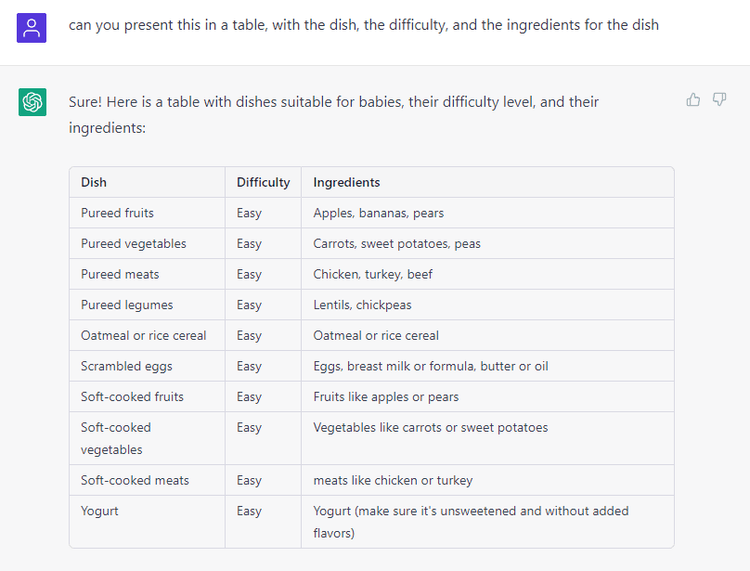Generating a long-tail keyword list
Most people don’t realize programmatic SEO is a completely different game to traditional content writing. You don’t hand-select keywords with decent volume and low difficulty: you have to find a whole category of long tail keywords that will add up to something.
Programmatic SEO
If a keyword is showing volume in a keyword tool like Ahrefs, everybody else can see it too...More
We need to find a way to generate a long-tail keyword list for our programmatic SEO program, and I thought… why not get ChatGPT to do it?
My daughter showed me it in the elevator on the way up and it’s remarkable
Is anyone here using it? Do you think it can give us a good starting point for the baby recipe content site we’re building?
Look into it and find out for me
This course is a work of fiction. Unless otherwise indicated, all the names, characters, businesses, data, places, events and incidents in this course are either the product of the author's imagination or used in a fictitious manner. Any resemblance to actual persons, living or dead, or actual events is purely coincidental.
Programmatic SEO is a completely different approach to traditional content writing. Instead of hand-picking a few keywords with decent volume and low difficulty, you’re looking for an entire category of long tail keywords that will add up to something.
The key to successful programmatic SEO is to find the keywords that don’t show up in the keyword tools. This requires a deep understanding of search intent, user behavior, and how people talk about the topic at hand.
The best way to start is to look at the top 10 search results for a given topic. These are the pages that are currently ranking in the search engine results pages (SERPs). Take a look at the content and note the common words and phrases used.
Next, use a keyword tool to find related keywords and phrases. Look for keywords that have decent search volume but aren’t overly competitive. These are usually the long tail keywords that you’re looking for. You want to look for niche keywords, which are highly specific searches that are often overlooked, but they must be part of a wider pattern.
For example you might not rank on “cheap flights” (head term) or “cheap flights to barcelona” (mid term), but there’s likely to be less competition and volume for “cheap flights to BCA”. More importantly, there’s a long list of airport codes, so having a page for every code can add up to a lot of search traffic. The category must be something people who buy your product would be interested in, otherwise the traffic won’t be worth anything.
Typically when you have a category that fits well, you then want to take that to an AI tool like ChatGPT to build out a larger list. ChatGPT can be prompted to add additional context from its training data and output it in table format, leaving you something you can easily parse into a spreadsheet.
Once you’ve gathered your long tail keywords, you can begin to create content around them. Create content that answers user questions and provides useful information. Be sure to use your target keywords throughout the content when generating the post.
Programmatic SEO involves a lot of research and analysis, but it’s worth the effort. By finding the right keywords and creating content around them, you can improve your search engine rankings and drive more organic traffic to your website.
Complete all of the exercises first to receive your certificate!
Share This Course
